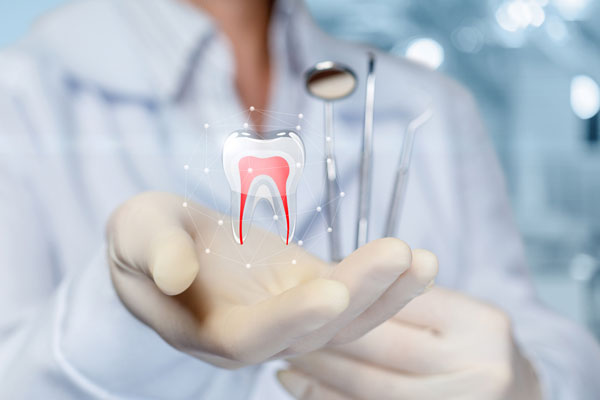Gum Recession and Receding Gums

Gum recession is a dental condition that occurs when a person’s gums recede from a tooth, exposing its root. According to the Mayo Clinic, there are over 200,000 cases of receding gums in the United States each year.
Receding gums are a significant dental health concern because they create space between the teeth and the gums. This leaves the teeth where the gums have receded vulnerable to harmful bacteria. These bacteria can cause tooth decay, infections or in some cases, tooth loss.
What causes gum recession?
When it comes to serious oral health issues like gum recession, prevention is essential. People who want to make sure their teeth and gums are as healthy as possible should note the causes of gum recession in order to take steps to avoid this condition.
Here are the main causes of receding gums:
Inadequate oral hygiene
One of the leading causes of receding gums is gum disease, which is often a result of subpar oral hygiene. People who do not brush or floss their teeth regularly or schedule visits to the dentist to remove harmful plaque and tartar build-up are especially prone to gum recession.
The best way for individuals to lower their risk of gum recession is to brush their teeth, floss and use an antiseptic mouthwash every day. It is also important to schedule regular dentist appointments so dentists can remove calculus from the mouth and monitor gum health.
Genetic factors
Some individuals have a higher likelihood of developing gum recession because of the way their teeth are positioned in their mouth, the size of their gums or other genetic factors outside of their control.
People who have a predisposition to gum recession should make sure to visit their dentist frequently to monitor the health of their gums. This way, if any signs of gum recession are detected, the dentist can prevent the problem from escalating further.
Gum wear
While vigilant brushers may think that they are doing their part to reduce their risk of developing receding gums, they may be causing more harm than good. Overbrushing or brushing teeth using too much force increases the wear and tear of the gums. This can increase the chances of a person developing gaps between their teeth and gums.
Options for preventing gum recession from this physical wear are to avoid sugary drinks that tear down the enamel of a tooth, use toothbrushes with soft or medium bristles and brush teeth using a non-aggressive technique.
Treating gum recession
Sometimes people do not realize that their gums have receded until they are experiencing sensitivity and pain from infection or tooth decay. In these cases where it is too late to prevent gum recession, there are treatment options available.
People who suspect that they are experiencing gum recession should talk to their dentist about minimally invasive gum recession treatments. These treatment options can help prevent further damage and reduce teeth and gum sensitivity.
Let's get started
Request an appointment here: https://thechesterfielddentist.com or call Chesterfield Dentist at (804) 412-0867 for an appointment in our Chester office.
Check out what others are saying about our services on Yelp: Read our Yelp reviews.
Recent Posts
Dental restorations offer ways to remove damaged tooth enamel, halt further decay, and restore the function of damaged or lost teeth. However, some mistaken beliefs prevent people from getting necessary care for oral health. Understand how to separate fact from fiction to make better choices for your dental care.Learn the truth behind the following four…
Endodontics often relieves intense tooth pain by treating infection or inflammation deep inside a tooth. When care stays gentle and methodical, root canal therapy can feel far more manageable than its reputation suggests. A general dentist who prioritizes comfort, clear communication, and careful technique can help the entire process move smoothly from diagnosis to recovery.…
A dentist’s job is to make sure your teeth stay in great health. For many patients, this means considering the benefits of dental restorations. Dentists recommend restorative procedures when a patient has a damaged, diseased, or missing tooth. These standard treatments stop the problem in its tracks, prevent additional injury and infection, and even provide…
The purpose of dental restorations is to replace permanent teeth that are lost. This can happen because of trauma to the tooth that renders it irreparable or decay that is so extensive that it requires extraction. There are several restoration options for replacing a missing tooth. Some are removable while others are permanently fixed in…


